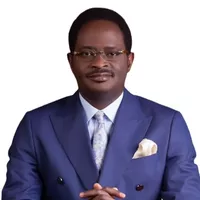- within Insurance, Technology and Employment and HR topic(s)
IMPORTANT LEGAL DECISIONS
In 2023, Nigeria witnessed the handing over of the baton of power in the aftermath of the 2023 general elections, and specifically the Presidential election. With 2023 being an election year, there were many election petition cases, some of which have been concluded while others remain pending. We are hopeful there will be a drop in cases of this ilk as we look forward to the next general elections. The jurisprudence and the decisions rendered by the courts in these cases have mostly been consistent with the extant position of the law.
APPELLATE PRACTICE
Of note is the decision of the Supreme Court in P.D.P. v. Uche (2023) 9 NWLR (Pt. 1890) 523, delivered on the 6th of January 2023. In the lead Judgment of Agim, JSC, His Lordship considered the constitutionality of an established judicial practice, wherein the Court of Appeal steps into the shoes of the trial court and pronounces on the merits of matters which the trial court – exercising its original jurisdiction as the court of first instance – fails to determine on its merits. In a powerful statement of the law, Agim, JSC opined that from the tenor of Sections 239 – 248 of the Constitution of the Federal Republic of Nigeria, 1999 (as altered), the jurisdiction of the Court of Appeal is primarily appellate. His Lordship accordingly determined that where a trial court fails to pronounce on the merits of a dispute, the Court of Appeal cannot purport to determine the merits of the matter.
Interpreting Section 15 of the Court of Appeal Act Cap. C36, LFN 2004, Agim, JSC opined that the Court of Appeal was imbued with the power to re-hear a matter, which presupposes that there must have been an initial hearing which the Court of Appeal is reviewing. While acknowledging that this established practice of the Court of Appeal was geared towards securing the right to justice of the litigating parties, Agim, JSC opined that this noble objective does not cure the unconstitutionality of the Court of Appeal exercising the original jurisdiction of the trial court. The decision in P.D.P. v. Uche supra is an important decision, as it appears to be a departure from the previous position of the Apex Court as enunciated in Inakoju v. Adeleke (2007) 4 NWLR (Pt. 1025) 423, which approved the now castigated practice of the Court of Appeal on the premise that it was designed to ensure speedy administration of justice and avoid multiplicity of action. Again, it remains to be seen whether the dictum of Agim JSC has sounded a death knell on the liberty to raise and argue fresh issues on appeal, with leave of the appellate court.
ELECTORAL JURISPRUDENCE
Also, a pivotal moment unfolded in Nigeria's electoral jurisprudence with the judgment delivered on 7th November 2023 by the Court of Appeal as touching appeals from the State Houses & National Assembly and Governorship elections in Plateau State - a seismic shift from well-established principles in our electoral jurisprudence. The judgment overturned the Election Petition Tribunal's decisions in Plateau State that had affirmed the election of Mr. Caleb Muftwang as the Governor of Plateau State, as well as the elections of certain individuals as members of the National and State House of Assembly . The Court of Appeal's pronouncements and/or decisions were complex and multifaceted, triggering diverse reactions and legal commentaries. The stakes were high, and the implications of these judgments have farreaching consequences on the political landscape of Plateau State.
In its judgment, the Court of Appeal found irregularities in the nomination and sponsorship procedures for candidates of the Peoples Democratic Party (PDP) in the primary elections. The Court held among other things that PDP's structure collapsed in 2020 and that the party had no structure to sponsor any candidate for an election. The court firmly established that, as they did not legitimately secure their candidacy under the platform of PDP, it logically followed that their absence from the ballot rendered the majority of votes they received futile. Under these circumstances, the candidates who secured the second highest number of votes in the Plateau State gubernatorial election, National and State House of Assembly elections were declared the winners.
At the heart of this legal earthquake was the setting aside of the decision of the Court of Appeal in respect of the governorship election by the Supreme Court whilst endorsing that of the Election Petition Tribunal. On 12th January 2024, the apex court's five-man panel led by Hon. Justice Emmanuel Akomaye Agim JSC, meticulously reviewed and unanimously set aside the Court of Appeal's decision that sacked Governor Muftwang. This Supreme Court's judgment not only reversed the Court of Appeal's judgment concerning the contentious Governorship Election Petition, but also upheld/restated the established principle of electoral law and/or jurisprudence (which the Court of Appeal deviated from). This principle posits that the Election Petition Tribunal (and indeed the Court of Appeal) does not have the jurisdiction to entertain a pre-election matter (to deal with or pronounce on the issue of candidates of a political party. This is because sponsorship of a candidate for election is an internal affairs of a political party) such as the instant case of Plateau State. See the case of A.P.P. v. Obaseki (2022) 13 NWLR (pt. 1846) 1 (SC) and Okadigbo v. Emeka (2012) 11 NWLR (pt. 1311) 237 (sc). For emphasis , a pre-election matter was used as a criterion by the Court of Appeal to nullify the lawful votes cast for the PDP candidates in a post-election/election petition matter, same which has now been set aside by the Supreme Court to preserve the electoral jurisprudence on this issue. Post-election disputes only contemplate actual election which is challengeable on the ground of undue election or undue return albeit on specific grounds prescribed under Section 134 of the Electoral Act, 2022.
However, the repercussions of this judicial thunderclap by the Supreme Court extend far beyond the gubernatorial election. The Supreme Court's pronouncement ripples through the fabric of electoral justice, directly challenging the Court of Appeal's stance on the National and State House of Assembly elections in Plateau State. This is so because the Court of Appeal is the final arbiter on appeals arising from National and State Houses of Assembly Election Petitions as provided in Section 246(3) of the 1999 Constitution of the Federal Republic, as amended ("1999 Constitution"). Since the very basis upon which the Court Appeal sacked the Governor of the State and 23 Federal and State lawmakers who were elected on the ticket of the PDP was struck down by the Supreme Court, it begs the question as to what becomes of the individuals who contested various seats in the National and State House of Assembly elections but who were sacked by the Court of Appeal, individuals who by law do not have the liberty of appealing beyond the said Court of Appeal. What is clear, without any iota of doubt, is that these individuals save for the Governor have suffered grave injustice. This was aptly captured by the head of the five member panel of the Supreme Court who was noted to have said his only worry is that a lot of people have suffered as a result of the Court of Appeal's decision. The position of the sacked individua ls has ignited impassioned discussions, not only within legal circles but also among the general populace. Social media platforms have become virtual arenas where opinions clash, and analyses abound especially as to the consequences of the Supreme Court's decision on the affected individuals sponsored by the PDP.
To view the full article click here
Originally Published February 2023
The content of this article is intended to provide a general guide to the subject matter. Specialist advice should be sought about your specific circumstances.









